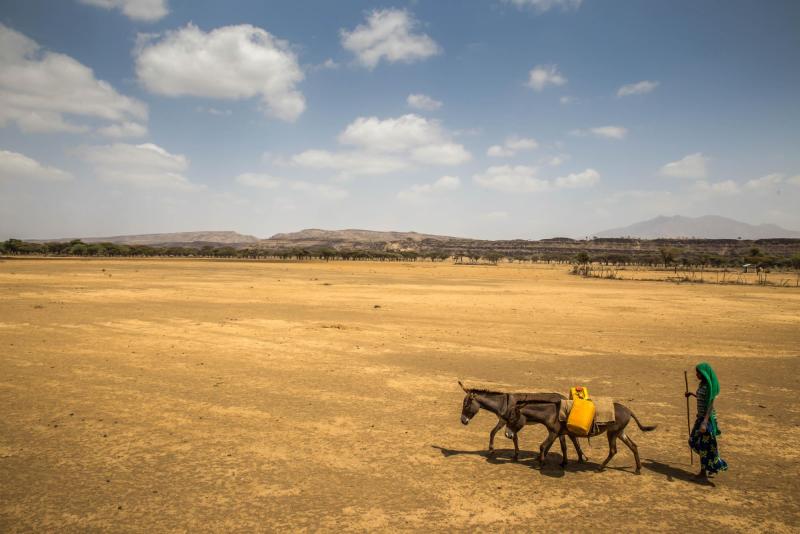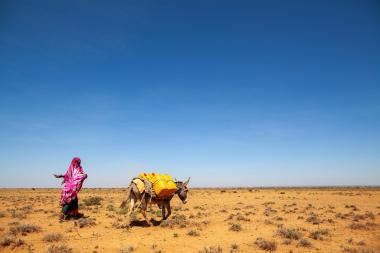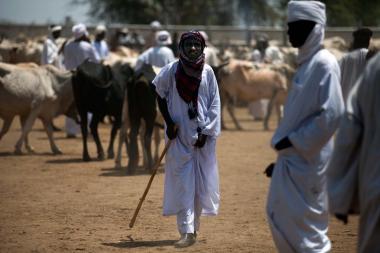Bearing the burden: Climate change-attributable losses and damages in the Sahel and Greater Horn of Africa
This report provides new data about the current and potential future losses and damages from climate-attributable weather events in the Sahel and Horn of Africa, with a specific focus on the agriculture and livestock sectors.
A good understanding of loss and damage is essential to helping least developed countries secure the support they need to address the adverse impacts of climate change. This report analyses data from across 18 countries in Africa to provide new estimates of the costs of climate change - in terms of lives lost, agricultural damage and more - from climate-attributable extreme weather events in the Sahel and Horn of Africa between 2000 and 2022, and makes projections for possible future losses. It also reviews existing literature to review indirect and non-economic losses and damages.
The findings are intended to support the members of the Loss and Damage Fund Board, as well as loss and damage negotiators from countries in the Sahel and the Horn of Africa, and the entities supporting loss and damage finance mechanisms, in their efforts to establish the details of the Fund.
More generally, the report should contribute to a better understanding of how to measure the impacts of climate-attributable loss and damage in data-poor countries, which are often also the most vulnerable to climate impacts. As the report authors show, assessing climate change impacts in difficult contexts is difficult, but it is possible – and data gaps should not prevent funding from being disbursed to some of the world’s most climate-vulnerable people.
The report analyses Burkina Faso, Cameroon, Chad, Djibouti, Eritrea, Ethiopia, the Gambia, Guinea, Kenya, Mali, Mauritania, Niger, Nigeria, Senegal, Somalia, South Sudan, Sudan and Uganda. A separate deep dive on climate-attributable losses and damages in Somalia was published earlier this year.
Key messages from the report include:
- Climate change contributed to 12,000 deaths from droughts and floods – around 39% of the total – and affected nearly 149 million people in the Sahel and Horn of Africa between 2000 and 2022.
- Climate change also cost $11.5 billion in crops & livestock losses in these regions.
- If the world warms to 2°C, by 2050 the total price tag - for crop & livestock damages, and lives lost, from climate-attributable droughts and floods - may reach $160 billion.
- Slow-onset processes related to climate change are already having significant negative impacts for food production in countries across the Sahel and Horn of Africa.
- People are already experiencing broad non-economic losses and damages, covering loss of physical and mental health, livelihoods, traditional knowledge, home and cultural identity.
- Analysing the impacts of climate change in fragile countries is difficult, but it is possible – and it should not be an excuse for inaction. Actors working on loss and damage should invest in more comprehensive loss and damage data collection in fragile and conflict-affected states, but also expand beyond the standard data collection and assessment methodologies to better quantify indirect, non-economic and slow-onset loss and damage. They should also prioritise understanding how loss and damage affects women, children, elderly people and marginalised groups to determine the true distribution of costs, and design targeted measures to address them.


